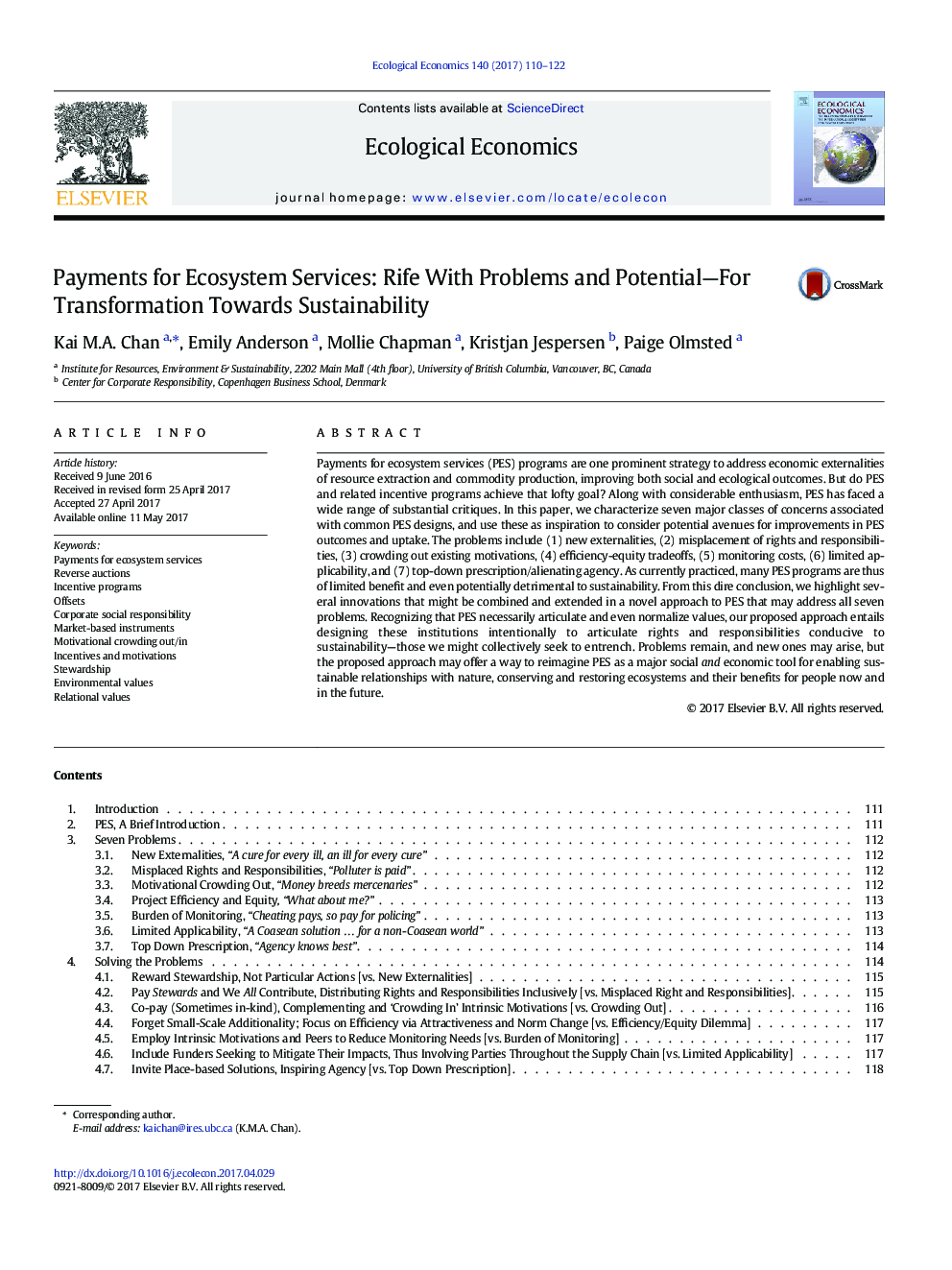| کد مقاله | کد نشریه | سال انتشار | مقاله انگلیسی | نسخه تمام متن |
|---|---|---|---|---|
| 5048639 | 1476339 | 2017 | 13 صفحه PDF | دانلود رایگان |

- Payments for ecosystem services (PES) programs suffer from â¥Â 7 classes of problems.
- Problems include misplacing rights and responsibilities and undermining motivations.
- The seven problems reviewed could be addressed via a re-imagination of PES.
- Redesigned PES could yield not only behavior change, but also value and norm change.
- By including supply chains, PES could foster transformation towards sustainability.
Payments for ecosystem services (PES) programs are one prominent strategy to address economic externalities of resource extraction and commodity production, improving both social and ecological outcomes. But do PES and related incentive programs achieve that lofty goal? Along with considerable enthusiasm, PES has faced a wide range of substantial critiques. In this paper, we characterize seven major classes of concerns associated with common PES designs, and use these as inspiration to consider potential avenues for improvements in PES outcomes and uptake. The problems include (1) new externalities, (2) misplacement of rights and responsibilities, (3) crowding out existing motivations, (4) efficiency-equity tradeoffs, (5) monitoring costs, (6) limited applicability, and (7) top-down prescription/alienating agency. As currently practiced, many PES programs are thus of limited benefit and even potentially detrimental to sustainability. From this dire conclusion, we highlight several innovations that might be combined and extended in a novel approach to PES that may address all seven problems. Recognizing that PES necessarily articulate and even normalize values, our proposed approach entails designing these institutions intentionally to articulate rights and responsibilities conducive to sustainability-those we might collectively seek to entrench. Problems remain, and new ones may arise, but the proposed approach may offer a way to reimagine PES as a major social and economic tool for enabling sustainable relationships with nature, conserving and restoring ecosystems and their benefits for people now and in the future.
Journal: Ecological Economics - Volume 140, October 2017, Pages 110-122